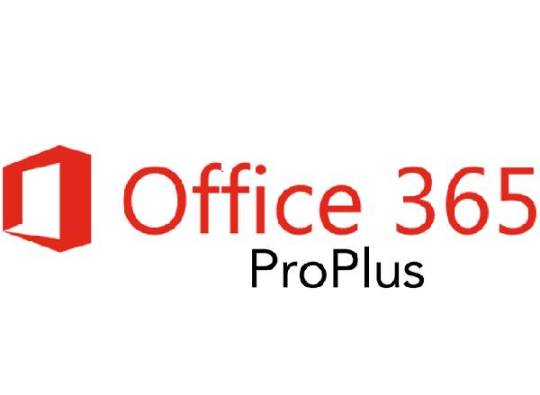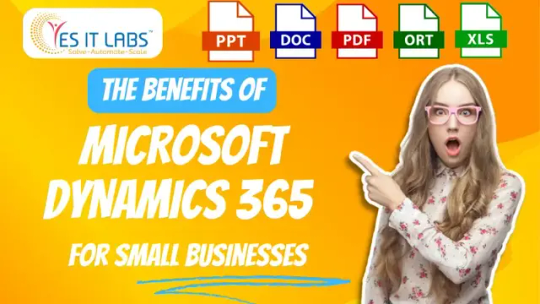#benefits of Microsoft 365
Explore tagged Tumblr posts
Text

7 Key Benefits of Microsoft 365 for Your Business
Unleash the capabilities of Microsoft 365: Elevate productivity, foster better collaboration, and fortify your business. Dive in today!
#Benefits of Microsoft 365#hire a developer#Microsoft 365 development Company#Microsoft 365 offers#benefits of Microsoft 365
0 notes
Text
👉 𝐑𝐞𝐚𝐝 𝐭𝐡𝐞 𝐟𝐮𝐥𝐥 𝐛𝐥𝐨𝐠 𝐭𝐨 𝐥𝐞𝐚𝐫𝐧 𝐦𝐨𝐫𝐞: https://jrsdynamics.com/why-is-erp-system-important-for-businesses/
#Benefits of ERP for Businesses#ERP Software for Small Businesses#Microsoft Dynamics 365 ERP#SAP Business One ERP#Top 10 ERP Software Companies In India#What Is ERP?#What is ERP and Why Do You Need It?#ERP Software#ERP
1 note
·
View note
Text
Benefits of Renewing Microsoft Office 365 ProPlus License with Radiant Info Solutions
Discover the advantages of renewing your Microsoft Office 365 ProPlus license with Radiant Info Solutions, a trusted Microsoft partner. Ensure seamless productivity and top-tier support.

#Microsoft Office 365 ProPlus license renewal#Radiant Info Solutions#Office 365 benefits#Microsoft partner#productivity tools
0 notes
Text
Unlocking Business Potential: The Impact of Dynamics Finance Consulting
Unlocking business potential is critical for companies aiming to thrive in an increasingly competitive environment. Dynamics 365 Finance plays a pivotal role in this quest by offering comprehensive solutions that transform financial management into a more strategic, efficient, and automated process. This integration of technology and finance not only streamlines operations but also provides significant insights that can drive smarter business decisions.
At the heart of Dynamics 365 Finance’s effectiveness is its ability to provide real-time visibility into financial operations. This transparency helps businesses track their financial health accurately, manage cash flow more effectively, and comply with regulatory standards without the need for extensive manual intervention. By automating routine tasks, Dynamics 365 Finance frees up valuable time for finance teams, allowing them to focus on more strategic tasks such as analysis and forecasting.
The impact of Dynamics Finance consulting becomes evident through its capability to tailor financial processes to the specific needs of each business. Customizable modules and user-friendly interfaces mean that companies can adjust the software to suit their unique workflows, enhancing flexibility and scalability. This customization is crucial for businesses that need to adapt quickly to market changes or regulatory updates without disrupting their core operations.
Dynamics 365 Finance also excels in integrating with other Microsoft products and third-party applications, creating a unified system that enhances data consistency and reduces error margins. This interconnectedness ensures that information flows seamlessly across departments, fostering better collaboration and enabling a holistic view of the organization’s financial landscape.
Financial forecasting and analytics are another area where Dynamics 365 Finance consulting shines. The platform’s advanced analytics tools help predict future trends based on historical data, giving executives the information they need to make informed decisions. These predictive capabilities can identify potential financial issues before they become problematic, allowing for proactive management and strategic planning.
For organizations looking to elevate their financial operations, VBeyond Digital offers expert Dynamics 365 Finance consulting services. With a strong focus on aligning technological solutions with business goals, we help companies optimize their financial processes to achieve maximum efficiency and effectiveness. Their deep expertise in Microsoft technologies ensures that clients receive knowledgeable support throughout their digital transformation efforts.
VBeyond Digital’s approach to client partnerships emphasizes a deep understanding of each company’s unique challenges and opportunities. By working closely with each client, we ensure that the solutions implemented are not only technologically advanced but also perfectly suited to the client’s business environment, driving growth and innovation.
In conclusion, Dynamics 365 Finance consulting holds the key to unlocking business potential by enhancing financial visibility, increasing operational efficiency, and enabling smarter decision-making. As companies continue to navigate the complexities of modern financial management, partnering with seasoned experts like those at VBeyond Digital can provide the guidance and support needed to leverage Dynamics 365 Finance to its full potential. This strategic integration of technology and business acumen is essential for any organization looking to secure a competitive advantage in today’s market.
0 notes
Text
#power automate consulting#power automate platform#use power automate#power automate use case#power automate online#microsoft power automate examples#benefits of power automate#power automate examples#microsoft power automation#power automate 365#powerautomate flow#power automate sharepoint#automate microsoft#power automation microsoft#power automate tasks
0 notes
Text
What can Microsoft Dynamics 365 Sales do for you?

Microsoft Dynamics 365 Sales is a comprehensive CRM solution offering sales automation, marketing integration, and customer service capabilities. It allows businesses to manage sales pipelines, nurture customer relationships, and streamline processes.
How Dynamics 365 Sales can help you:
Capture and access sales data from anywhere.
Take actions based on insights to close deals faster.
Track accounts, contacts, and sales from lead to order.
Create sales collateral and marketing campaigns.
Integrate with other modules like Marketing, Customer Service, and Field Service for collaboration across departments.
For more advanced features, there are different offerings available:
Dynamics 365 Sales Premium: Ideal for organizations needing AI-driven insights and sales automation. It combines enterprise sales capabilities with AI features like guided selling and predictive models.
Dynamics 365 Sales Enterprise: Suited for enterprises requiring contextual insights and advanced customization. It automates sales processes, runs marketing campaigns, and enforces best practices.
Microsoft Relationship Sales: Designed for enterprises integrating LinkedIn data with Dynamics 365 Sales to enhance customer interactions.
Microsoft Dynamics 365 Sales Professional: Offers sales automation with a subset of Sales Enterprise features, including visual insights, customer 360° view, and simplified opportunity-to-invoice processes.
youtube
The solution equips sales teams with tools for digital selling, relationship building, collaboration, and boosting productivity. It also provides mobile applications for on-the-go access and advanced features like forecasting, real-time performance tracking, and AI-driven recommendations. Integration options with other applications further enhance seller efficiency and customer collaboration.
What are advantages of dynamics 365 sales?
Dynamics 365 Sales provides several benefits for businesses aiming to streamline sales processes and enhance customer relationships:
Microsoft Integration: Seamlessly connects with familiar Microsoft tools like Outlook, Excel, and SharePoint, promoting efficient teamwork across departments.
Unified Platform: As part of Dynamics 365 suite, integrates smoothly with Customer Service, Marketing, and Field Service modules, ensuring a comprehensive understanding of customer data and interactions.
AI-driven Insights: Utilizes built-in AI to analyze data, offering actionable insights for prioritizing leads, spotting trends, and personalizing customer interactions.
Scalability: Highly adaptable to businesses of all sizes, from startups to large enterprises, accommodating organizational growth and evolving needs.
Mobile Accessibility: Accessible anytime, anywhere via mobile apps, enabling sales reps to stay productive on-the-go and promptly respond to customer inquiries.
Task Automation: Automates repetitive tasks like data entry, email tracking, and reminders, allowing sales teams to focus on fostering relationships and closing deals.
Customization and Extensibility: Offers extensive customization options to tailor the system to specific workflows and requirements, with support for integrating third-party applications for expanded functionality.
Predictive Analytics: Leverages historical data and predictive analytics to forecast sales trends, identify risks, and optimize sales strategies for better results.
Improved Collaboration: Centralizes customer data, communication history, and documents, facilitating collaboration among sales teams, managers, and other departments, promoting better teamwork and goal alignment.
Enhanced Customer Experience: Provides a comprehensive view of customer interactions and preferences, enabling personalized experiences, anticipating needs, and fostering long-term relationships, resulting in higher customer satisfaction and loyalty.
You May like to read this : Top 10 benefits of using Microsoft Dynamics 365 Sales
How to Get Started with Dynamics 365 Sales?
If you’re wondering to get start with d365 sales, then you’re at right place. Get ready for an exciting journey into Dynamics 365 Sales with confidence! As your trusted Microsoft Solutions Partner for business applications , About The Solution is here to make it easy. We'll customize your setup, ensure smooth integration, and offer continuous support to boost your sales.
Conclusion:
Microsoft Dynamics 365 Sales is your go-to powerhouse for turbocharging growth and efficiency in your business. With a variety of options including Sales Premium, Enterprise, Relationship Sales, and Professional, there's something to fit every unique need. Plus, its seamless integration with other modules fosters collaboration across your entire team. And don't forget about the invaluable support from trusted partners like About The Solution—they're here to guide you every step of the way, ensuring you achieve nothing less than sales excellence and long-lasting success!
#About The Solution#Dynamics 365#microsoft dynamics 365#dynamics 365 sales#benefits of using Microsoft Dynamics 365 Sales#Youtube
0 notes
Text

Dynamics 365 vs NetSuite ERP: A Comparison
In this blog, we provide a comprehensive comparison between two leading enterprise resource planning (ERP) solutions – Microsoft Dynamics 365 and NetSuite ERP. We delve into the details of both systems, comparing their features, capabilities, and suitability for growing businesses. Whether you’re a small startup or a mid-sized business, our comparison will help you make an informed decision about the best ERP solution for your business needs.
Microsoft Dynamics 365 Finance and NetSuite ERP are two of the fastest-growing enterprise resource planning (ERP) solutions. With a focus on ongoing innovation, both offer a comprehensive suite of applications designed to streamline business operations and improve efficiency. But how do they stack up against each other? In this blog, we’ll delve into the details of both systems and compare their features, capabilities, and suitability for growing businesses.
Overview for Microsoft Dynamics 365
Microsoft Dynamics 365 is a suite of intelligent business applications that helps you run your entire business and deliver greater results through predictive, AI-driven insights. It combines CRM and ERP capabilities, integrating seamlessly with other Microsoft products such as Office 365, Power BI, and Azure.
Dynamics 365 offers a range of modules, including Sales, Customer Service, Field Service, Human Resources, Finance, and Supply Chain Management. Each module can be used independently or in combination, providing flexibility and scalability to growing businesses.
Overview of NetSuite
NetSuite ERP, a product of Oracle, is a cloud-based, all-in-one business management solution. It provides a suite of applications, including accounting, inventory management, CRM, and e-commerce. NetSuite is designed to automate operations, streamline processes, and provide real-time visibility into key business metrics.
NetSuite’s strength lies in its unified business suite approach, offering a single source of truth for all business data. It’s particularly popular among mid-sized businesses and large enterprises looking for a comprehensive solution that can scale with their growth.
How NetSuite Compares to Microsoft Dynamics 365 Finance
When comparing NetSuite to Microsoft Dynamics 365 Finance, both offer robust financial management capabilities. However, there are some key differences.
NetSuite provides a comprehensive financial management solution with features like general ledger, accounts payable/receivable, and cash management. It also offers built-in business intelligence with real-time reporting and analytics.
On the other hand, Dynamics 365 Finance goes beyond traditional ERP systems by using AI to predict future trends and make data-driven decisions. It offers in-depth financial insights, automates financial processes, and reduces operational expenses.
Here’s a detailed explanation of how the features of Microsoft Dynamics 365 Finance compare against NetSuite:
User Interface and Customization: Microsoft Dynamics 365 Finance provides a more intuitive and user-friendly experience compared to NetSuite. Its interface is designed to be familiar to users of other Microsoft products, reducing the learning curve and speeding up adoption.
Scalability and Flexibility: Microsoft Dynamics 365 Finance can adapt to the changing needs of businesses of all sizes, from small startups to large enterprises. It offers a wide range of modules and functionalities that can be tailored to specific industry requirements, making it a more flexible solution than NetSuite.
Reporting and Analytics: Microsoft Dynamics 365 Finance provides robust reporting tools, real-time dashboards, and advanced analytics features that enable businesses to make data-driven decisions. While NetSuite also offers reporting features, Dynamics 365 Finance’s integration with Power BI takes its analytics capabilities to another level.
Integration Capabilities: Microsoft Dynamics 365 Finance seamlessly integrates with other Microsoft products, such as Office 365, Power BI, and Azure, providing a unified and connected ecosystem for businesses. This level of integration can lead to increased efficiency and streamlined workflows.
Security and Compliance: Microsoft Dynamics 365 Finance adheres to industry standards and regulations, offering robust security measures to protect sensitive financial data. Microsoft’s commitment to security is well-known, and this extends to Dynamics 365 Finance.
Customer Support and Resources: Microsoft provides a wealth of customer support and community resources for Dynamics 365 Finance users. This includes online documentation, forums, and training materials that can help users maximize the software’s potential.
Overview of Microsoft Dynamics 365 Business Central
Microsoft Dynamics 365 Business Central is a comprehensive business management solution designed for small to mid-sized organizations. It automates, streamlines, and connects various business processes, helping users manage multi-department operations, teams, and projects more efficiently and effectively.
Business Central integrates with other Microsoft cloud services including Office 365 and can be customized or extended for specific industry needs with PowerApps, Microsoft Flow, and Power BI.
Here are some key points about Microsoft Dynamics 365 Business Central:
Comprehensive Business Management: Business Central connects sales, service, finance, and operations to work smarter, adapt faster, and perform better. It provides a unified solution to manage all aspects of your business.
Designed for Small and Mid-sized Organizations: Business Central is optimized for small and mid-sized organizations, providing a solution that can scale along with your business as it grows.
Latest Updates and Features: Microsoft continually invests in Business Central, adding new features and capabilities with each release. The 2021 release wave 2, for example, brought a host of new features and investments by Microsoft to the platform.
Microsoft Dynamics 365 Business Central also comes with built-in light customer relationship management (CRM) capabilities that can help businesses manage their customer relationships more effectively. Here are some key CRM capabilities of Dynamics 365 Business Central:
Contact Management: Business Central allows you to keep track of your contacts and categorize them based on various factors such as sales, relationship status, and engagement history. This helps you manage your relationships with your customers effectively.
Sales Management: With Business Central, you can manage your sales from lead to cash. It allows you to keep track of your sales opportunities, create quotes, manage orders, and handle invoices, all from a single platform.
Service Order Management: Business Central also allows you to manage your service orders and agreements. You can register your after-sales issues including service requests, service orders, and repair requests.
Marketing: Business Central comes with built-in marketing tools that allow you to manage your marketing efforts effectively. You can segment your contacts based on specific criteria and run targeted marketing campaigns.
Integration with Dynamics 365 Sales: If you need more advanced CRM capabilities, Business Central can be integrated with Dynamics 365 Sales. This allows you to synchronize your data across both platforms and provides you with additional CRM features such as sales force automation, customer service, and field service.
Why You Should Choose Microsoft Dynamics Over NetSuite
Choosing between Microsoft Dynamics and NetSuite depends largely on your business needs. However, there are several reasons why you might lean towards Dynamics 365.
Firstly, if your business is already using Microsoft products, Dynamics 365 offers seamless integration, providing a unified and familiar experience for users. Secondly, Dynamics 365’s AI capabilities offer predictive insights that can drive more informed business decisions. Lastly, Dynamics 365 offers more flexibility in terms of deployment, with options for on-premises, cloud, or hybrid models.
Benefits of Dynamics 365
Here are some reasons why you should choose Microsoft Dynamics over NetSuite:
Integration with Microsoft Products: Microsoft Dynamics 365 Finance integrates seamlessly with other Microsoft products, such as Office 365, SharePoint, and SQL databases. This integration allows businesses to leverage their existing Microsoft tools and streamline their operations, which is a significant advantage over NetSuite.
Scalability and Flexibility: Microsoft Dynamics 365 Finance is known for its scalability and flexibility. It can adapt to the changing needs of businesses of all sizes, from small startups to large enterprises. It offers a wide range of modules and functionalities that can be tailored to specific industry requirements.
Advanced Analytics and Reporting: Microsoft Dynamics 365 Finance provides robust reporting tools, real-time dashboards, and advanced analytics features that enable businesses to make data-driven decisions. While NetSuite also offers reporting features, Dynamics 365 Finance’s integration with Power BI takes its analytics capabilities to another level.
Security and Compliance: Microsoft Dynamics 365 Finance adheres to industry standards and regulations, offering robust security measures to protect sensitive financial data. Microsoft’s commitment to security is well-known, and this extends to Dynamics 365 Finance.
Pricing: While both Microsoft Dynamics and NetSuite offer subscription-based pricing models, Dynamics is typically more expensive than NetSuite. However, the additional cost can be justified by the extensive features, capabilities, and integrations offered by Dynamics 365 Finance.
Dynamics 365 and Dynamics 365 Business Central are Best for Growing Businesses
Microsoft Dynamics 365 and Dynamics 365 Business Central are excellent choices for growing businesses due to several reasons:
Comprehensive Business Management Solution: Both Dynamics 365 and Business Central offer comprehensive business management solutions. They streamline and automate business processes, helping businesses manage their operations more efficiently.
Scalability: These platforms are designed to adapt to the changing needs of businesses. As your business grows, Dynamics 365 and Business Central can scale with you, providing the necessary tools and functionalities to handle increased demand.
Connected Cloud Solution: Dynamics 365 Business Central provides a connected cloud business management solution. This means you can bring together your finance, sales, services, and operations teams within a single application, providing the insights needed to drive your business forward.
Optimized for Small and Medium Businesses: Dynamics 365 Business Central is built and optimized for small and medium businesses. It’s an ideal solution for companies that have outgrown their entry-level business applications or are replacing outdated legacy systems.
Integration with Other Microsoft Products: Both Dynamics 365 and Business Central integrate seamlessly with other Microsoft products, such as Office 365, SharePoint, and SQL databases. This integration allows businesses to leverage their existing Microsoft tools and streamline their operations.
Conclusion
Microsoft Dynamics 365 and NetSuite ERP are robust and comprehensive enterprise resource planning systems, each with their unique strengths. However, when it comes to integration with other Microsoft products, scalability, and advanced analytics capabilities, Dynamics 365 stands out. Its AI-driven insights, flexibility, and seamless integration with familiar Microsoft tools make it a compelling choice, particularly for businesses already invested in the Microsoft ecosystem.
Dynamics 365 Finance and Dynamics 365 Business Central, in particular, offer highly detailed business management solutions that can scale with the growth of your business. Their robust reporting tools, real-time dashboards, and advanced analytics features enable businesses to make data-driven decisions. Moreover, their adherence to industry standards and regulations ensures robust security measures to protect sensitive financial data.
Ultimately, the choice between Dynamics 365 and NetSuite ERP will depend on your specific business needs and existing infrastructure. However, for growing businesses seeking a scalable, flexible, and integrated solution, Dynamics 365 Business Central presents a compelling case.
Consult our experts to discuss your business requirements and plan your Dynamics 365 ERP implementation or migration. Get in touch here.
#microsoft dynamics 365 vs netsuite#netsuite vs microsoft dynamics#netsuite erp overview#microsoft dynamics 365 business central overview#benefits of dynamics 365
0 notes
Text
In today's competitive business landscape, having an efficient and robust ERP (Enterprise Resource Planning) system is crucial for organizations to stay ahead of the curve. Microsoft Dynamics 365 Business Central is a comprehensive ERP solution that offers numerous benefits for businesses in Dubai. In this blog, we will explore the top advantages of implementing Microsoft Dynamics 365 Business Central in Dubai and how it can transform your organization's operations.
#https://adroetech.blogspot.com/2023/07/the-top-benefits-of-implementing.html#microsoft dynamics 365 business central in dubai
0 notes
Text
Microsoft's powerful CRM offers a set of advanced tools and software a business need to grow. Find out the key benefits of Microsoft Dynamics 365, from Comprehensive Customer Insights to automation.
0 notes
Text
I think in light of recent events it’s important for everyone to move away from google and Microsoft ecosystems. I suspect the next 4 years are going to be rampant with big corps being allowed to do whatever the fuck they want, and as your local tech nerd I have some suggestions:
(Also, none of these feature AI tools as far as I’ve been able to tell!)
Search engine suggestions
The popular one I see is duckduckgo, but they’ve had a number of scandals at this point. The one I currently use is startpage, which is based in the Netherlands. The EU has much stricter data privacy laws than US based search engines. It operates off google but hides your data from google, so you get the benefit of google’s search engine without them knowing every single little thing about you.
Browser suggestions
The one I personally use is Vivaldi because aside from a once a day ping to count active users, they track no user data. It also has a built in ad and tracker blocker that works well in my opinion. It also hasn’t had any major scandals. (Please for the love of god don’t use operaGX)
Email suggestions
The one I currently use is Proton Mail. The proton ecosystem also features a VPN, Drive, Calendar, and other tools- it’s essentially a 1:1 replacement for most google/office 365 tools. To have a good amount of storage you do need to pay, but it’s not terribly expensive and most people can get by on the free tier. You can also have it reroute emails from your Gmail to proton, so you can benefit from their encryption without nuking your Gmail.
Other suggestions
Linus Tech Tips has a series on how to “un-google” your life. YouTube took down all videos except the first one (another example of big corps being fucking wild), but they can be found on blogs if you look up the series.
Stay safe yall 🩵
32 notes
·
View notes
Text

The Benefits of Microsoft Dynamics 365 for Small Businesses
Revolutionize Your Small Business Using Microsoft Dynamics 365: Enhance Efficiency, Elevate Productivity, and Fuel Expansion. Discover More Today!
#Microsoft Dynamics 365#Microsoft Dynamics#Benefits of Microsoft Dynamics 365#Hire Microsoft 365 developers#customer relationship management
0 notes
Text
The Limbo of Advanced Users and Amateur Developers in Microsoft 365

Microsoft 365, the successor to the iconic Office suite, has transformed how millions of people work, collaborate, and manage their daily tasks. However, this transformation has not been equal for everyone. While businesses and corporations have access to a myriad of powerful tools through robust subscriptions, advanced users — those enthusiasts who have historically driven innovation through customization and automation — are left in limbo. This article argues that Microsoft, by prioritizing service-based and enterprise-focused models, has abandoned beginner developers and advanced users, once the cornerstone of its tools’ success.
The Golden Age of Customization
In the past, Microsoft Office allowed rich customization and automation through Visual Basic for Applications (VBA) and integration with technologies like COM (Component Object Model). These features enabled individuals, even without corporate tools, to create scripts to automate tasks, customize interfaces, and connect applications in innovative ways. With VBA, a user could generate automated reports in Excel or build macros to streamline repetitive processes in Word. This turned Office into not only a productivity tool but also a learning platform for budding developers.
However, with the migration to Microsoft 365, this flexibility has been significantly reduced. VBA remains available in a limited capacity, but its usage is increasingly marginalized, and many new features of Microsoft 365 are inaccessible through it. Furthermore, VBA has no support in the web environment, which is becoming increasingly central to modern workflows.
A Service, Not a Tool
Microsoft 365 represents a fundamental shift: from locally installed software to a cloud-based service. While this approach offers benefits like real-time collaboration and automatic updates, it has severely limited advanced users. Local automation has taken a back seat, and the focus has shifted to tools like Power Automate — a powerful platform, but largely inaccessible to personal users.
Power Automate is clearly designed for the corporate environment. Many of its most compelling features are locked behind business-specific subscriptions, leaving individual users without practical alternatives. For users seeking advanced and customized solutions, Microsoft 365 is no longer a viable option.
Apple’s Counterpoint
While Microsoft appears to be moving away from advanced users, Apple is taking the opposite direction. Tools like Shortcuts, AppleScript, and Automator make Apple’s applications highly customizable, even for personal users. Tasks can be automated in Pages, Numbers, Reminders, and Calendar without relying on corporate services. This approach not only empowers users but also fosters curiosity and learning among new developers.
This contrast highlights the central issue: Apple values tech enthusiasts and amateur developers, while Microsoft seems to have relegated them to a secondary role, if not excluded them entirely.
The Impact on the Future of Technology
Microsoft’s abandonment of advanced users has broader implications beyond daily workflows. For many developers, tools like VBA served as an entry point to programming. Removing these opportunities makes practical learning more difficult and stifles grassroots innovation. At a time when the market needs more developers and creative thinkers, this decision is particularly troubling.
Moreover, this exclusion risks alienating a community that has historically been crucial to Office’s success. Advanced users are often technology “evangelists” within their circles, promoting tools and influencing purchasing decisions. Ignoring them poses a significant strategic risk for Microsoft.
Conclusion: What Should Microsoft Do?
If Microsoft wants to regain the trust and engagement of advanced users, several actions are essential:
1. Revitalize VBA and Similar Technologies: Ensure that local automations are not only supported but encouraged, including integration with new Microsoft 365 features.
2. Expand Access to Power Automate: Offer more platform functionalities to individual users without requiring corporate subscriptions.
3. Acknowledge the Value of Advanced Users: Develop tools and initiatives aimed at educating and empowering amateur developers and tech enthusiasts.
In a world increasingly dominated by cloud-based services, striking a balance between innovation and accessibility is crucial. Microsoft has an opportunity to correct its course and reaffirm its commitment to the community that helped it succeed. If it fails to do so, it risks losing a vital segment of its user base to more inclusive alternatives.
2 notes
·
View notes
Text
What Is an Workspace Used For?

A workspace is a designated area, physical or digital, where individuals or teams perform their tasks, collaborate, and access the resources they need. Workspaces are essential for productivity and are designed to organize tools, projects, and workflows effectively. Here are common uses for workspaces:
1. Organizing Work and Projects
Workspaces allow people to organize tasks, files, and tools in a single location. For instance, a digital workspace in project management software like Asana or Trello keeps all project details, timelines, and task assignments in one view, making it easier to manage progress.
2. Facilitating Collaboration
In team settings, workspaces provide a shared environment where team members can collaborate on documents, track project progress, and communicate. Platforms like Microsoft Teams or Slack provide digital workspaces where team members can chat, share files, and work together in real time, regardless of location.
3. Enhancing Focus and Productivity
Workspaces are designed to reduce distractions and make tools readily accessible, allowing individuals to focus on their work. In a physical setting, this could mean an office or dedicated desk area with all necessary equipment. Digitally, this could mean a customized dashboard that houses frequently used apps and resources.
4. Storing and Accessing Information
Workspaces often include storage features where teams can save and organize files, documents, and other resources. This centralization ensures that everyone has easy access to the information they need, reducing time spent searching for files.
5. Streamlining Communication
Communication is smoother within a workspace, where integrated chat, video conferencing, and commenting features allow team members to connect directly. Many workspaces, such as Google Workspace or Microsoft 365, combine communication and productivity tools, facilitating both synchronous and asynchronous communication.
6. Managing Workflow and Task Delegation
Workspaces provide tools for task assignment, tracking, and deadline management, which help keep projects moving forward. By setting clear workflows, workspaces enable managers and teams to break down complex projects into actionable tasks and assign responsibilities.
7. Improving Flexibility in Remote Work
With the rise of remote work, digital workspaces have become essential for flexible working arrangements. Cloud-based platforms allow employees to access their workspace from anywhere, giving teams the freedom to work outside a traditional office while staying connected.
Key Benefits of a Workspace
Centralization: Combines resources, tools, and information in one accessible location.
Efficiency: Reduces time spent searching for tools or information.
Adaptability: Suits various needs, whether for individual focus or team collaboration.
Enhanced Organization: Keeps work structured, whether in a physical office, a digital platform, or a combination of both.
In summary, a workspace—whether physical, digital, or hybrid—serves as a structured environment to organize tasks, collaborate, store information, and manage workflow, ultimately boosting productivity and efficiency.
2 notes
·
View notes
Text
The Benefits of Cloud Hosting for Small Business
In the past, hosting websites and apps just required paying a digital platform provider to rent out a single server or computing cluster. Services for web hosting have existed for as long as the internet. Over the past ten years, cloud hosting where the website or application resides on virtual servers dispersed across the cloud has emerged as a popular way to make digital assets accessible online.
A worldwide content delivery network can be connected to by Google Cloud to provide customers with optimal speed and minimal latency when serving material, or a domain can be registered and managed. Google Cloud also provides a range of hosting options for websites and applications.

What is cloud hosting?
Your data is stored on several servers rather than on a single server, which is what is meant by the term "cloud hosting." The term "cloud" refers to this network of several servers that collaborate to form the network. Cloud hosting services are currently being utilized by a multitude of businesses, both large and small. An investment of this kind is definitely worth the rewards, and it has the potential to achieve great things for your company.
You will have a single platform from which you can manage all of your applications and databases, which will allow you to streamline your operations. The productivity of your firm can also be improved by making an investment in cloud infrastructure resources. The various advantages of cloud hosting will be discussed in further depth in the following paragraphs.
Cloud hosting’s Significance for Small Businesses-
Adopting cloud computing has becoming increasingly important for small organizations. It helps small businesses to avoid the high initial investment and ongoing maintenance costs of having internal IT infrastructure. Small businesses can now access advanced technologies and capabilities that were previously exclusive to large organizations by utilizing the cloud.
What are the applications of cloud computing?
Although you might not be aware of it, there is a good chance that you are currently utilizing cloud computing. Whether you use an online service such as Gmail or Outlook 365 to send an email, collaborate on a document, save data, or stream a video, cloud computing makes it feasible behind the scenes to do all of these things.
Cloud Hosting:
Cloud hosting services make it possible to share a variety of information, such as using email services, hosting applications, using web-based phone systems, and storing data. Hosting your company's website, managing databases, and storing domain names are all things that may be done with a cloud hosting service. The fact that cloud hosting services are located offsite makes it simple to scale up in order to handle peak loads.
Backup services:
Backup services in the cloud are failsafe solutions that can be utilized in the event that your company suffers a server disaster, cyberattack, or other type of data loss. Storage, data synchronization and restoration, real-time backups, archiving, and a high level of security are all features that are included in the top cloud backup services. A great number of cloud storage firms now offer cloud backup and storage capabilities.
Storage in the cloud:
Cloud services guarantee that your data is stored in a cloud storage system that is located offsite, making it more convenient to access from any device or place that is linked to the internet. In cloud storage, you are able to securely exchange information with others and synchronize files across several devices. Companies such as Dropbox, Microsoft OneDrive, and Google Drive are examples of well-known cloud storage services.
Software as a service
Software as a service, also known as SaaS, is a solution for the distribution of applications that is hosted in the computer's cloud. SaaS solutions can be utilized by businesses in a variety of operational domains. For instance, you may adopt software for customer relationship management (CRM) that is hosted on the cloud, such as Salesforce, for the purpose of managing sales, accounting software, such as QuickBooks Online, for managing finances, and email marketing software for improving marketing communications.
Cloud Solutions' Advantages for Small Businesses-
Affordable
Small firms can minimize their expenditures on hardware, software licenses, and information technology by switching to cloud-based services, which results in cost savings. Companies that provide cloud computing services often provide a pay-as-you-go approach, which enables organizations to only pay for the resources and services that they actually employ.
Protection of Sensitive Information and Disaster Recovery
Cloud service companies adopt stringent security procedures to protect vulnerable information. In addition to this, they provide solutions for disaster recovery and automatic backups, which serves to ensure that vital corporate information is safeguarded, quickly recoverable, and less likely to be lost.
Scalability:
Cloud hosting solutions enable small businesses to swiftly scale their operations up or down as needed without the inconvenience and expense of physically upgrading their gear and software. Scalability includes the ability to scale up or down activities. This flexibility enables adaptability and growth prospects, both of which are essential in a market that is very competitive.
Advantage in the Market
Cloud hosting solutions give small firms the ability to compete on an equal playing field with larger organizations, which gives them a competitive advantage. It is possible for them to obtain insights, streamline operations, and make decisions based on data without breaking the bank by utilizing sophisticated software, analytics tools, and advanced information technology.
Flexibility
As a result of the fact that all that is required to access the cloud is an internet connection, one of the advantages of cloud hosting is that it provides direct remote access to the data that is pertinent to all of your employees, including yourself. If you run a small business, it's possible that you don't have the financial resources to purchase a dedicated office space. People are able to work from any location they choose thanks to this cloud-based technology. Having the ability to operate from a remote location is more important than ever before for the success of a company, especially in light of the recent epidemic.
Increased Capacity for Collaboration and Adaptability
Cloud solutions enable small businesses to communicate with remote team members, clients, and partners in a seamless manner, which helps improve the flexibility and collaboration capabilities of these firms. It makes it possible to share files in real time, modify them simultaneously, and gain access to the most recent versions of documents, all of which contribute to increased productivity and efficiency.
The Most Recent Technology
Cloud hosting eliminates the need for you to worry about the possibility of automatically upgrading and customizing your servers, in contrast to traditional hosting, which does not permit such activities. Scalability is something that may be easily achieved as your company expands and your requirements and preferences shift.
Because cloud hosting businesses are experts in this kind of technology, this is something that can be easily accomplished. Since they have access to more resources, they are able to undertake research and construct systems that are more robust and powerful. You will have access to the most cutting-edge technologies available if you make an investment in cloud infrastructure.
Very little to no upkeep is required
Recall what I mentioned earlier regarding the safety concerns associated with cloud computing. That being said, a portion of that security necessitates the routine maintenance of servers, the updating of software, and the administration of networks. The good news is that cloud computing relieves you of the responsibility of doing all of that upkeep and instead places it in the hands of skilled specialists.
Because none of the equipment is hosted by you, you do not need to be concerned about purchasing newer versions of it every three to four years. You are not required to deal with any of that maintenance, which frees up more time for your firm to concentrate on the product or service that it offers.
Remote access
When it comes to cloud computing, your email account is the ideal illustration. Providing that you have your login credentials and an internet connection, you are able to access your consolidated email account from any computer. Cloud computing is appealing to a majority of businesses because of the convenience it provides. Your colleagues and you will be able to access your work from any location in the globe thanks to the cloud, which eliminates the need to store your work on a desktop computer or on a local area network (LAN) server that is not linked to the internet. Your productivity and freedom in your workspace will both increase as a result of this remote access.
Conclusion-
Through the simplification of procedures and the facilitation of real-time collaboration among members of a team, cloud computing has the potential to boost both efficiency and productivity. It is possible for teams to collaborate effectively regardless of their geographical location or the time zone differences between them if they have shared access to documents and files. In addition, many cloud-based services provide automation technologies that reduce the amount of manual work that employees have to perform, such as data entry or report production. This allows employees to concentrate on high-value tasks that contribute to the success of the company.

Dollar2host Dollar2host.com We provide expert Webhosting services for your desired needs Facebook Twitter Instagram YouTube
3 notes
·
View notes
Text
Navigating the Complexities of Microsoft Licensing: A Comprehensive Guide
Introduction: In the realm of enterprise software solutions, Microsoft License stands as a behemoth, offering a vast array of products and services that power businesses worldwide. However, along with its extensive suite of offerings comes a complex web of licensing agreements and models that can befuddle even the most seasoned IT professionals. Understanding Microsoft licensing is crucial for organizations to ensure compliance, optimize costs, and harness the full potential of Microsoft's technologies. In this comprehensive guide, we'll delve into the intricacies of Microsoft licensing, unraveling its various components, and offering insights to navigate this complex landscape.

Understanding Microsoft Licensing: Microsoft License offers a diverse portfolio of products catering to different business needs, ranging from operating systems like Windows, productivity suites like Microsoft 365, to advanced cloud services like Azure. Each of these products comes with its own licensing requirements, which can vary significantly depending on factors such as usage scenarios, deployment models, and organizational size.
Core Concepts of Microsoft Licensing:
Software Assurance: Software Assurance is an optional offering that provides benefits such as upgrade rights, training vouchers, and support services, offering organizations flexibility and additional value.
Volume Licensing: Microsoft offers various volume licensing programs tailored to different organizational sizes and needs, including Enterprise Agreements, Select Plus, and Microsoft Products and Services Agreements (MPSA). These programs enable organizations to procure licenses in bulk, often at discounted rates.
Subscription vs. Perpetual Licensing: Microsoft License offers both subscription-based licensing, where organizations pay a recurring fee for access to software, and perpetual licensing, where licenses are purchased outright with no expiration date. Understanding the implications of each model is crucial for organizations in making informed decisions.
Product Use Rights: Microsoft's Product Use Rights (PUR) document outlines the terms and conditions governing the use of its products, including licensing rules, restrictions, and exceptions. Familiarizing oneself with the PUR is essential for ensuring compliance.
Licensing Models for Different Products:
Windows Licensing: Windows operating system Microsoft License are available in various editions, including Windows 10 Pro, Enterprise, and Education. Understanding the licensing requirements for each edition, as well as options such as Virtual Desktop Access (VDA) for accessing virtualized Windows environments, is essential.
Office and Microsoft 365 Licensing: Microsoft offers multiple licensing plans for its Office suite and Microsoft 365, catering to different usage scenarios and user types. Organizations must choose the appropriate plan based on factors such as user needs, compliance requirements, and budget constraints.
Azure Licensing: Azure's flexible licensing model offers pay-as-you-go options, as well as various subscription and consumption-based plans. Understanding Azure's pricing and licensing models, including factors such as Reserved Instances and Hybrid Benefit, can help organizations optimize costs and maximize value.
Compliance and Optimization Strategies:
License Compliance: Ensuring compliance with Microsoft License terms is paramount for organizations to avoid legal and financial repercussions. Regular audits and license assessments can help identify areas of non-compliance and mitigate risks.
License Optimization: Optimizing Microsoft licensing involves aligning license purchases with actual usage, eliminating redundancies, and leveraging cost-saving options such as Software Asset Management (SAM) tools and licensing optimization services.
Cloud Cost Management: For organizations leveraging Microsoft's cloud services such as Azure, effectively managing cloud costs is critical. Strategies such as rightsizing virtual machines, leveraging reserved instances, and implementing cost allocation and tagging practices can help optimize cloud spending.
Conclusion: Navigating the complexities of Microsoft License requires a solid understanding of its various components, licensing models, and compliance requirements. By familiarizing themselves with Microsoft's licensing terms, leveraging the right licensing programs, and adopting optimization strategies, organizations can not only ensure compliance but also optimize costs and maximize the value derived from Microsoft's technologies. In a rapidly evolving technological landscape, staying abreast of changes in Microsoft's licensing policies and leveraging expert guidance can empower organizations to navigate this complex terrain effectively.
Website: https://microsoftlicense.com/
#Microsoft License#مایکروسافت لایسنس#خرید لایسنس مایکروسافت#همکار رسمی مایکروسافت#لایسنس ویندوز اورجینال#لایسنس قانونی ویندوز#نسخه اصلی ویندوز اورجینال#نسخه قانونی محصولات مایکروسافت
2 notes
·
View notes
Text
An efficient solution now available on Microsoft AppSource - RealEstatePro for Property Management: RealEstatePro on Microsoft AppSource
RealEstatePro on Dynamics 365 for Operations stands as a flagship solution, automating the renting, leasing, or sales cycle within the real estate industry. As property developers strive to meet increasing market demands, a comprehensive Enterprise Resource Planning (ERP) solution with Real Estate capabilities becomes vital for their business.
Key Features:
RealEstatePro is equipped with two specialized modules – one designed for property rental and leasing, and another tailored for property sales.
The Property Management System automates the processes involved in property rental and leasing, simplifying and optimizing workflows.
The Sales Management System automates property sales, guaranteeing a smooth and efficient sales cycle.
Benefits:
Automation: Streamline your business processes with end-to-end automation, reducing manual efforts and minimizing errors.
Enhanced Efficiency: Maximize your team's productivity with RealEstatePro's efficient tools, allowing them to focus on strategic tasks.
Tailored for Real Estate: RealEstatePro is specifically designed for the unique needs of the real estate industry, ensuring that your business operates at its peak.
How RealEstatePro Works?
RealEstatePro leverages the robust Dynamics 365 Finance and Operations platform to provide an intuitive and powerful solution for property developers, owners, and brokers. With a user-friendly interface, it simplifies complex processes, making day-to-day operations smoother and more efficient.
Get Started
Explore RealEstatePro on Microsoft AppSource and experience the difference in your real estate operations. Check it out here: https://appsource.microsoft.com/en-US/product/DynamicsOps/dynamicnetsoftuae.realestatepro
2 notes
·
View notes